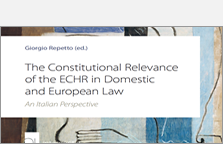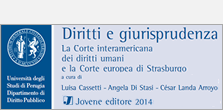Abstract
With the judgment Cordella e altri c. Italia, The European Court of Human Rights back to rule on the “ILVA case”, condemning the Italian State for the violation of art. 8 C.E.D.U. (right to private life) because the institutional authorities failed to take the necessary measures to protect the right of those concerned to respect their private lives, on which the polluting emissions of ILVA would have interfered. The ECHR also decides for the violation of the art. 13 C.E.D.U. (right to have an effective remedy), considering that the Italian legal system was devoid of internal remedies by which the inhabitants concerned could have complained about the failure to implement the environmental recovery plan required by the “save-ILVA” decrees and, ultimately, effectively defending against the violation of a right protected by the European Convention. […]
Con la sentenza Cordella e altri c. Italia , la Corte Europea dei Diritti dell’Uomo si è pronunciata sul noto “caso Ilva”, condannando lo Stato italiano per violazione dell’art. 8 C.E.D.U. (diritto al rispetto della vita privata e familiare), in quanto le autorità istituzionali avrebbero omesso di adottare quelle misure necessarie per proteggere il diritto degli interessati al rispetto delle loro vite private, sulle quali avrebbero interferito le emissioni inquinanti dell’acciaieria ionica. Il decidente europeo ha altresì ravvisato la violazione dell’art. 13 C.E.D.U. (diritto a un ricorso effettivo), ritenendo che l’ordinamento italiano fosse inoltre privo di vie di ricorso interne per mezzo delle quali gli abitanti interessati avrebbero potuto lamentare la mancata attuazione del piano di risanamento ambientale previsto dai decreti “salva-Ilva” e, in definitiva, difendersi in modo effettivo a fronte della violazione di un diritto sancito dalla Convenzione.
Pur a fronte di tali constatazioni, tuttavia, alle vittime non è stato accordato alcun risarcimento, in quanto la Corte EDU, come in altre occasioni , ha ritenuto che l’accertamento delle violazioni costituisse una riparazione sufficiente per il danno morale subito (§ 187). […]













